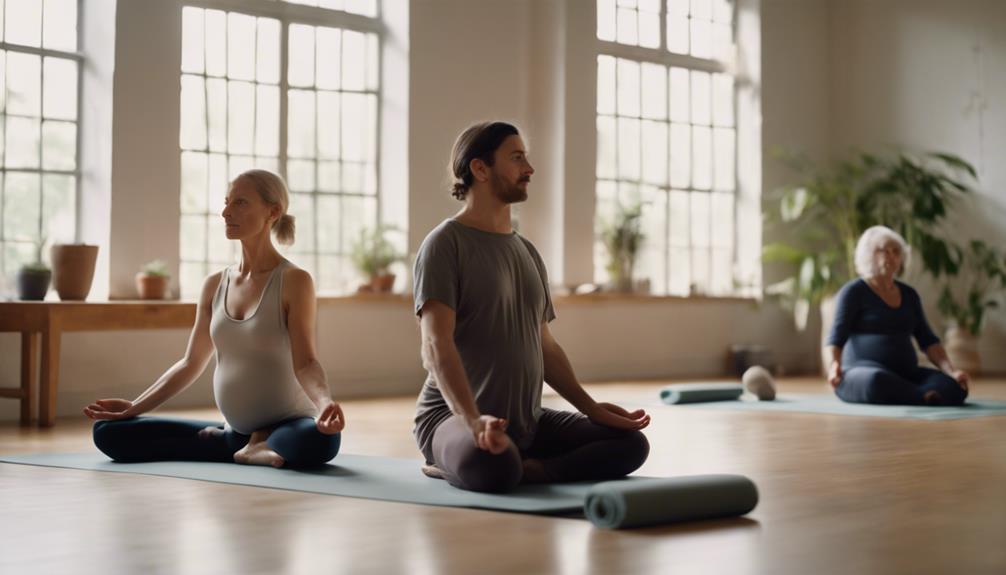
Yoga has become a global phenomenon, embraced for its physical benefits, mental clarity, and spiritual insights. However, for those who hold the Bible as a guiding light in their lives, the question arises: What does the Bible say about yoga? Delving into this topic invites us to explore the intersection of faith and practice, and whether these two worlds can harmoniously coexist. Let’s unravel the yoga mystery and see how biblical perspectives can inform our understanding!
Unraveling the Yoga Mystery: Biblical Insights Await!
As we embark on this journey, it’s essential to recognize that yoga’s roots lie in Hinduism and Buddhism, practices intertwined with Eastern spirituality. The Bible, on the other hand, presents a distinctly different worldview centered around a relationship with God through Jesus Christ. This contrast raises questions about the compatibility of yoga with Christian beliefs. The Bible teaches us to focus on things that are pure, lovely, and admirable (Philippians 4:8), which leads us to contemplate whether the spiritual aspects of yoga align with these principles.can you lose weight doing chair yoga
In exploring biblical insights, we find that the Bible encourages physical movement and care for our bodies. 1 Corinthians 6:19-20 reminds us that our bodies are temples of the Holy Spirit, urging us to honor God through our physical wellbeing. While yoga emphasizes a union of body and mind, Christian practice also promotes holistic health through principles like stewardship and self-care. Thus, the physical benefits of yoga, such as flexibility and strength, can be seen as compatible with biblical teachings about maintaining our God-given bodies.
However, practitioners must remain vigilant about the spiritual elements that accompany yoga. Instead of adopting the meditative practices rooted in Eastern spirituality, Christians can focus on prayer, worship, and biblical meditation. By redirecting the energy of yoga towards a relationship with God, individuals can cultivate a practice that honors their faith while enjoying the physical advantages of yoga. After all, connecting with God can be a deeply enriching experience that promotes both physical and spiritual well-being.
Stretching Faith: Can Yoga and the Bible Coexist?
The question of coexistence becomes particularly interesting when we examine the underlying intentions behind our yoga practice. If the goal is to find inner peace and mindfulness, Christians can approach yoga as a means to enhance their personal relationship with God. Many people find that yoga’s meditative components can serve as a springboard for deeper spiritual contemplation, inviting them to focus on scripture or prayer during their practice. By cultivating an atmosphere of worship and gratitude, the practice can be transformed into a form of devotion.
Furthermore, many contemporary yoga classes incorporate themes of gratitude and self-reflection, which resonate with biblical teachings. For example, embracing the idea of being present in the moment aligns closely with scriptural calls to “be still and know” (Psalm 46:10). This mindfulness can help practitioners better appreciate God’s creation and foster a sense of peace and connection with the divine. By integrating this awareness into yoga practice, individuals can deepen their faith while experiencing the physical and mental benefits of stretching and breathing.
Ultimately, the coexistence of yoga and the Bible depends on the individual’s intent and approach. It’s vital to examine personal motivations and ensure that they align with biblical values. Engaging with yoga through a Christian lens, focusing on worship, prayer, and scriptural reflection, can create a vibrant and fulfilling practice. By intertwining physical movement with spiritual growth, believers can stretch their bodies while simultaneously stretching their faith.
In conclusion, the dialogue surrounding yoga and the Bible is a rich tapestry woven with threads of faith, spirituality, and physical wellness. While yoga’s origins may raise questions for some, Christians can find a harmonious path that respects their beliefs while enjoying the numerous benefits yoga offers. By focusing on intentionality and redirecting the practice towards God, yoga can indeed become a joyful expression of faith and self-care. So, whether you’re stretching your body or your faith, remember that the journey is as important as the destination—let love guide your practice!





